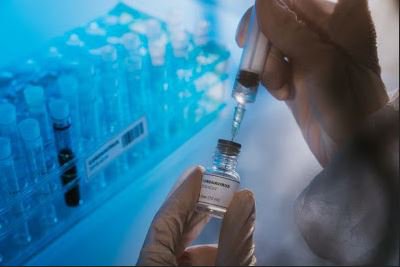News
Tension As Coronavirus Vaccine Raises Doubts As Monkey Trial Shows It Is Only Partially Effective
A trial of the coronavirus vaccine in rhesus macaque monkeys did not stop any of the animals from catching the virus, raising doubts about its effectiveness in humans.
Doubts have been raised about the coronavirus vaccine tipped to be the ‘front runner’ in the fight against COVID-19, after a trial in monkeys found the jab is ‘only partially effective.’

The vaccine, developed by Oxford University, is currently being tested in humans, with the promise of 30 million doses for the UK by September if it proves successful.
However, a trial of the vaccine in rhesus macaque monkeys did not stop any of the animals from catching the virus, raising doubts about its effectiveness.
Writing for Forbes, Dr William Haseltine, a former professor at Harvard Medical School, said: “All of the vaccinated monkeys treated with the Oxford vaccine became infected when challenged as judged by recovery of virus genomic RNA from nasal secretions.
“There was no difference in the amount of viral RNA detected from this site in the vaccinated monkeys as compared to the unvaccinated animals. Which is to say, all vaccinated animals were infected.”
The trial was carried out at the National Institute of Health’s Rocky Mountain Laboratory, and saw six monkeys given the vaccine, before being exposed to coronavirus.
A control group of three non-vaccinated monkeys were also infected, before all nine monkeys were monitored for seven days.
While all nine monkeys tested positive for COVID-19, those who had been vaccinated were found to have less severe symptoms.
Dr Haseltine said: “It is crystal clear that the vaccine did not provide sterilising immunity to the virus challenge, the gold standard for any vaccine. It may provide partial protection.”
While the findings suggest that the vaccine may only be partially effective, experts claim that the findings are ‘encouraging.’
Professor Jonathan Ball, Professor of Molecular Virology at the University of Nottingham, who was not involved in the trial, said: “The fact that the vaccine prevented pneumonia in all, and symptoms in some, of the vaccinated animals is encouraging,we know that many vaccines work because they prevent serious disease rather than preventing virus infection.
“However, the amount of virus genome detected in the noses of the vaccinated and unvaccinated monkeys was the same and this is concerning”.
-

 Celebrity Gossip & Gist2 days ago
Celebrity Gossip & Gist2 days ago“The money wey dem pay me don expire” – Moment Burna Boy stops his performance at the Oando PLC end of the year party (Video)
-

 Economy2 days ago
Economy2 days agoGoods worth millions of naira destroyed as fire guts spare parts market in Ibadan
-

 Celebrity Gossip & Gist18 hours ago
Celebrity Gossip & Gist18 hours agoMoment stage collapses on Odumodublvck during concert performance (Video)
-

 Economy18 hours ago
Economy18 hours agoPresident Tinubu cancels Lagos engagements in honor of food stampede victims




